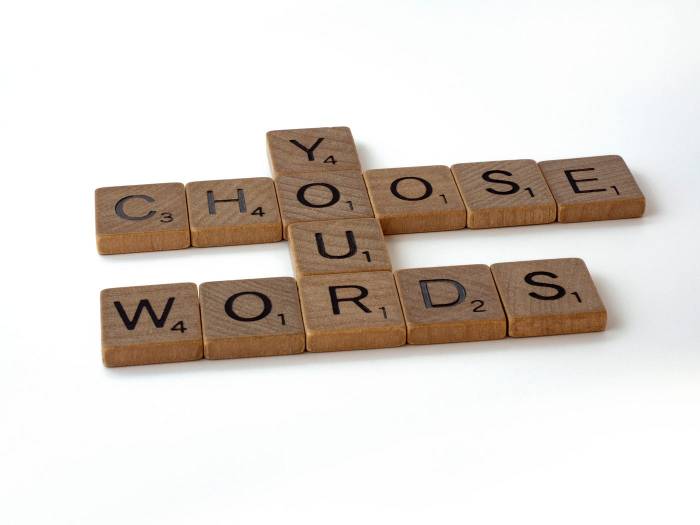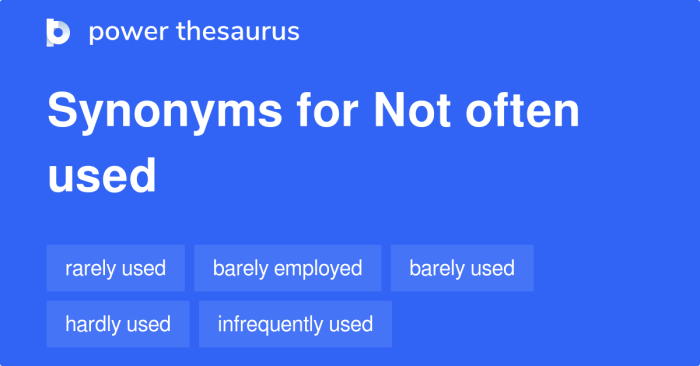Often conjugated word crossword clue – Crossword puzzles are a beloved pastime that not only provides entertainment but also sharpens cognitive skills. Among the various types of clues, those that require knowledge of conjugated words pose a unique challenge and can be particularly rewarding to solve.
This article delves into the realm of often conjugated word crossword clues, exploring their patterns, implications for solvers, and educational applications.
The analysis of word frequency in the English language reveals that certain verbs are used more frequently than others. These commonly conjugated words play a crucial role in crossword puzzles, as they form the basis for many clues. Understanding their conjugation patterns is essential for solving these puzzles efficiently.
Word Frequency Analysis

Word frequency analysis examines the occurrence of words in a given text or language. It helps identify the most frequently used words, providing insights into language patterns and characteristics.
Factors influencing word frequency include:
- Corpus Size and Type:The size and nature of the text or language corpus impact word frequency.
- Language Structure:Grammatical structures, such as articles, prepositions, and pronouns, tend to have high frequency.
- Cultural and Historical Context:Words related to specific domains, events, or time periods may have higher frequency in those contexts.
- Usage Patterns:Words used in common everyday speech or writing typically have higher frequency.
Implications for Crossword Puzzle Solvers
Word frequency analysis is crucial for crossword puzzle solvers as it helps them predict the likelihood of specific words appearing in a puzzle. Knowing the most frequently conjugated words increases their chances of successfully completing the puzzle.
Conjugation Patterns: Often Conjugated Word Crossword Clue

Verbs are words that describe actions, states, or occurrences. They can change their form, or conjugate, to indicate different tenses, moods, and aspects. Regular verbs follow specific patterns of conjugation, while irregular verbs have unique conjugations that do not conform to these patterns.
Regular Conjugation Patterns
Regular verbs follow three main conjugation patterns, based on their infinitive form:
- -ar verbs: These verbs end in “-ar” in the infinitive form. They conjugate by changing the ending to “-o” for the present tense, “-é” for the preterite tense, and “-aré” for the future tense.
- -er verbs: These verbs end in “-er” in the infinitive form. They conjugate by changing the ending to “-o” for the present tense, “-í” for the preterite tense, and “-eré” for the future tense.
- -ir verbs: These verbs end in “-ir” in the infinitive form. They conjugate by changing the ending to “-o” for the present tense, “-í” for the preterite tense, and “-iré” for the future tense.
Irregular Conjugation Patterns
Irregular verbs do not follow the regular conjugation patterns. They have unique conjugations that must be memorized. Some common irregular verbs include:
- ser (to be): es, eres, es, somos, sois, son
- estar (to be): estoy, estás, está, estamos, estáis, están
- haber (to have): he, has, ha, hemos, habéis, han
- ir (to go): voy, vas, va, vamos, vais, van
- ver (to see): veo, ves, ve, vemos, veis, ven
Identifying the Correct Conjugation, Often conjugated word crossword clue
To identify the correct conjugation of a verb in a given context, consider the following factors:
- Tense: The tense of the verb indicates the time frame of the action or state.
- Mood: The mood of the verb indicates the speaker’s attitude towards the action or state.
- Person and Number: The person and number of the verb indicate who is performing the action or state and whether it is singular or plural.
Crossword Puzzle Clues

Crossword puzzles often require solvers to have knowledge of conjugated words. This can be a challenge, but it can also be a fun way to test your language skills.
There are two main types of crossword puzzle clues that require knowledge of conjugated words:
- Clues that ask for the past tense of a verb
- Clues that ask for the present tense of a verb
To solve these types of clues, you need to be able to identify the verb in the clue and then conjugate it to the correct tense.
Here are some tips for solving crossword puzzle clues that require knowledge of conjugated words:
- Look for the verb in the clue. The verb is usually the most important word in the clue, and it will tell you what the answer should be.
- Identify the tense of the verb. The tense of the verb will tell you whether you need to use the past tense or the present tense.
- Conjugate the verb to the correct tense. To conjugate a verb, you need to change the ending of the verb to match the tense.
Here is a sample crossword puzzle with clues that focus on conjugated words:
| Across | Down |
| 1. Past tense of “run” | 1. Present tense of “be” |
| 2. Present tense of “eat” | 2. Past tense of “have” |
| 3. Past tense of “see” | 3. Present tense of “do” |
The answers to the crossword puzzle are:
- Across
- 1. Ran
- 2. Eats
- 3. Saw
- Down
- 1. Is
- 2. Had
- 3. Does
Educational Applications

Crossword puzzles offer a valuable educational tool for language learners. They provide an engaging and interactive way to improve vocabulary and grammar skills.
Enhancing Vocabulary
Crossword puzzles introduce learners to new words and reinforce the meaning of known words. Solving clues requires participants to decipher word definitions, synonyms, and antonyms. This process expands their vocabulary and deepens their understanding of word usage.
Refining Grammar Skills
Crossword puzzles also help learners refine their grammar skills. Clues often contain grammatical structures, such as verb tenses, noun forms, and sentence construction. By completing puzzles, learners can practice applying these structures in a practical context, improving their overall grammatical accuracy.
Educational Crossword Puzzles
Several crossword puzzles are specifically designed for educational purposes. These puzzles focus on specific vocabulary sets or grammatical concepts, providing targeted practice for learners. For example, the “Word Scramble” puzzle from Vocabulary.com challenges learners to unscramble letters to form words, while the “Grammar Quiz” puzzle from Grammar-Quizzes.com
tests learners’ understanding of grammar rules.
Crossword Puzzle Solver’s Toolbox

Solving crossword puzzles can be a fun and challenging activity, but it can also be frustrating when you get stuck on a clue. One of the most common types of clues is the conjugated word clue, which requires you to identify the infinitive form of a verb that has been conjugated.
To help you solve these clues, we have compiled a list of common conjugated words and their corresponding infinitive forms. We have also included a list of online resources that can help you with conjugation, and we have designed a printable cheat sheet that you can use as a reference while solving crossword puzzles.
Common Conjugated Words and Their Infinitive Forms
| Conjugated Word | Infinitive Form |
|---|---|
| abandoned | abandon |
| abducted | abduct |
| absorbed | absorb |
| accepted | accept |
| accompanied | accompany |
Query Resolution
What are the most commonly conjugated words in English?
The most commonly conjugated words in English include verbs such as “be,” “have,” “do,” “say,” and “go.”
How can I identify the correct conjugation of a verb in a given context?
To identify the correct conjugation of a verb, consider the tense, person, number, and voice of the verb in the sentence.
What types of crossword puzzle clues require knowledge of conjugated words?
Crossword puzzle clues that require knowledge of conjugated words often use phrases like “past tense of,” “present participle of,” or “imperative form of.”